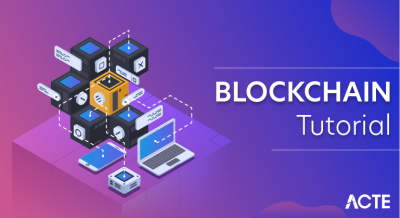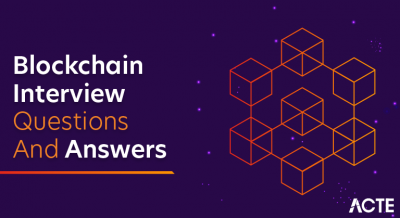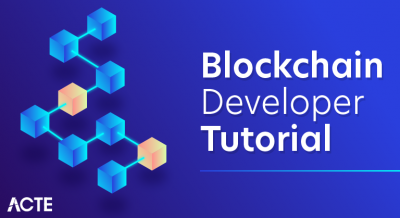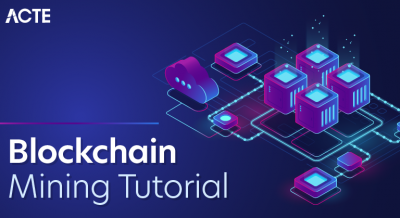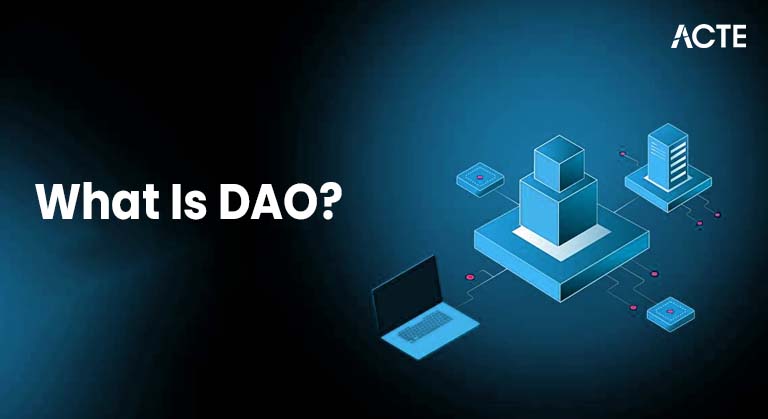
- Introduction to DAO
- History and Evolution of DAOs
- How Does a DAO Work?
- Key Components of a DAO
- Advantages of DAOs
- Challenges and Risks Associated with DAOs
- Real-World Examples of DAOs
- The Future of DAOs
Introduction to DAO
A DAO, or Decentralized Autonomous Organization, is a revolutionary concept that’s reshaping how organizations operate in the digital age. But what is DAO exactly? In simple terms, it’s an entity governed by code instead of people, where decisions are made collectively by stakeholders rather than a central authority. The core idea behind a Decentralized Autonomous Organization (DAO) is transparency, trustless interaction, and community-driven governance, made possible through smart contracts on a blockchain. With blockchain technology, DAOs enable participants to collaborate and make decisions without a central authority. Smart contracts ensure fairness and accountability by automatically enforcing rules. To better understand DAOs and how they function, Blockchain Training is essential. It provides the knowledge needed to grasp blockchain technology, smart contracts, and their role in decentralized governance. These smart contracts automatically execute decisions based on rules encoded into the system, eliminating the need for traditional intermediaries like managers or executives. DAO in blockchain ecosystems has enabled everything from investment clubs and charitable foundations to large-scale DeFi protocols, all run by communities with aligned incentives. Token holders typically vote on key decisions, including proposals, funding, or protocol changes, making participation open and democratic. Since all actions and financial transactions are recorded on a public ledger, DAOs offer a level of accountability and openness rarely seen in traditional organizations. While the concept is still evolving, DAOs represent a major shift in how we think about governance, collaboration, and control in the digital world, making them one of the most promising innovations in the blockchain space.
Are You Interested in Learning More About Blockchain Certification? Sign Up For Our Blockchain Training Course Today!
History and Evolution of DAOs
- The Birth of the DAO Concept (2013–2015): The idea of a DAO emerged alongside the rise of Ethereum, which introduced smart contracts. These self-executing contracts enabled organizations to run autonomously without central leadership. The Future of Polygon Blockchain offers improved scalability and lower transaction costs, making it a key player in the growth of DAOs. Blockchain Training helps you understand how Polygon’s solutions can shape the future of decentralized organizations.
- The Launch and Fall of “The DAO” (2016): In 2016, the first major DAO simply named “The DAO” raised over $150 million but was soon hacked due to a code vulnerability. This led to a hard fork in Ethereum, a pivotal moment that reshaped the DAO landscape and highlighted the importance of secure smart contract development.
- Rebuilding Trust and Structure (2017–2019): Following the hack, developers focused on better governance models and security frameworks. Smaller DAOs with focused missions began emerging, paving the way for a stronger foundation.
The concept of DAO organizations has evolved significantly since its inception, transforming from a niche idea into a foundational pillar of the Web3 ecosystem. Rooted in blockchain technology, DAOs have challenged traditional models of governance by offering decentralized, transparent, and community-led alternatives. Their history reveals how these organizations have adapted through technological innovation, setbacks, and growing adoption.
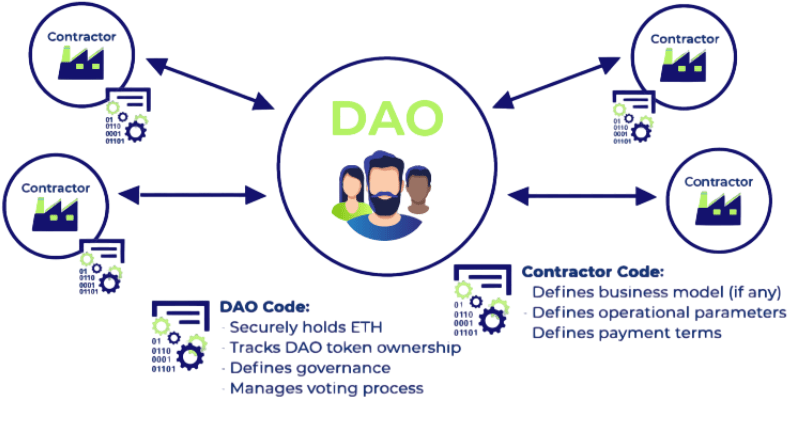
- Rise of DAO Web3 Ecosystem (2020–2021): As DAO Web3 tools and platforms matured, DAOs became a driving force in decentralized finance (DeFi), NFT projects, and community governance. Token-based voting and treasury management became core features of modern DAOs.
- Notable DAO Organizations: Angel DAO & Alliance DAO: Innovative collectives like Angel DAO (focused on early-stage investments) and Alliance DAO (supporting Web3 startups) exemplify how DAOs are being used for venture support and ecosystem development. They demonstrate the diversity and scalability of the DAO model.
- The Future of DAOs (2022 and Beyond): The future of DAOs points to even more integration across sectors from gaming and art to politics and enterprise. As legal recognition, tools, and frameworks improve, DAOs are expected to redefine digital collaboration and ownership on a global scale.
How Does a DAO Work?
To understand how a DAO works, it’s essential to first ask, what is DAO? A Decentralized Autonomous Organization is a community-led entity with no central authority, governed entirely by smart contracts self-executing code that runs on the blockchain. These contracts define the rules of the organization and automatically enforce decisions, removing the need for traditional managers or intermediaries. In a DAO in blockchain systems, members typically hold governance tokens, which grant them voting rights on important proposals such as how funds are allocated, changes to protocol rules, or new initiatives. The The Future of Blockchain Technology will enhance scalability, security, and efficiency, driving the growth of DAOs and their integration into various industries. These advancements will further empower decentralized governance and decision-making. When a proposal is submitted, token holders can vote transparently, and if it passes, the smart contract automatically implements the decision. This decentralized governance model allows for trustless collaboration, meaning participants don’t need to know or trust each other to work together. Everything is recorded on a public ledger, ensuring transparency and security. DAOs are often used in DeFi platforms, investment groups, and digital communities, giving users collective control and ownership over the project. As blockchain adoption grows, so does the relevance of DAOs, marking a major shift in how people organize, fund, and govern shared digital ventures in the modern web3 world.
Are You Interested in Learning More About Blockchain Certification? Sign Up For Our Blockchain Training Course Today!
Key Components of a DAO
- Smart Contracts: The backbone of any DAO organization, smart contracts are self-executing pieces of code that define the rules and automate decision-making within the organization. They eliminate the need for central authority or intermediaries.
- Governance Tokens: DAO Web3 projects use governance tokens to allow stakeholders to vote on proposals, making the system decentralized and community-driven. Choosing the Best Ethereum Wallets is essential for securely storing tokens and participating in DAO decisions.
- Decentralized Decision-Making: Unlike traditional organizations, DAOs empower members to make collective decisions through token-based voting. This ensures that power isn’t concentrated in the hands of a few individuals, creating a more democratic structure.
A DAO (Decentralized Autonomous Organization) is built on several key components that work together to create a transparent, decentralized, and efficient system. These components enable community-driven governance, trustless operations, and participation without the need for intermediaries. Here are the essential building blocks that define how DAOs operate:
- Treasury Management: A DAO’s treasury is typically managed collectively, where funds are allocated based on community votes. For example, Angel DAO focuses on using its treasury to fund early-stage investments, with decisions made transparently by its members.
- Proposals and Voting: Proposals, which can range from protocol changes to funding requests, are a core component of DAOs. Members submit ideas, and the community votes to accept or reject them, creating a fair and participatory process.
- The Future of DAOs: The future of DAOs lies in their evolution, with more DAOs like Alliance DAO helping Web3 projects scale and thrive. As legal frameworks, technology, and participation models evolve, DAOs are expected to play a central role in the decentralized future of governance and business.
Advantages of DAOs
DAO Organizations offer a range of significant advantages that traditional centralized entities cannot match. One of the most prominent benefits is the decentralized decision-making process, where all members, empowered with governance tokens, can vote on key proposals. This ensures that power is not concentrated in the hands of a few, fostering a more democratic structure. Since DAO Web3 technologies are built on blockchain, everything is transparent and traceable, reducing the risk of fraud and increasing trust among members. This transparency is one of the key benefits of DAOs, as all transactions and decisions are recorded on the blockchain, ensuring accountability. To fully understand how these systems operate and the benefits they offer, Blockchain Training is essential. It provides the knowledge needed to grasp blockchain technology, smart contracts, and how they contribute to the trust and security of decentralized organizations. Additionally, DAOs are inherently global and borderless, allowing anyone with an internet connection to participate, which promotes inclusivity. Angel DAO and Alliance DAO, for instance, showcase how DAOs can fund projects or support startups, with decisions made collectively, ensuring that investments align with the community’s interests. Another advantage is the automation of decision-making via smart contracts, reducing human error and eliminating the need for intermediaries. This leads to faster, more efficient operations. Looking ahead, the Future of DAOs holds even more potential as legal frameworks evolve, enabling DAOs to gain more mainstream adoption. The combination of transparency, automation, and decentralized governance makes DAOs an ideal model for the future of collaboration, innovation, and digital ownership in the Web3 ecosystem.
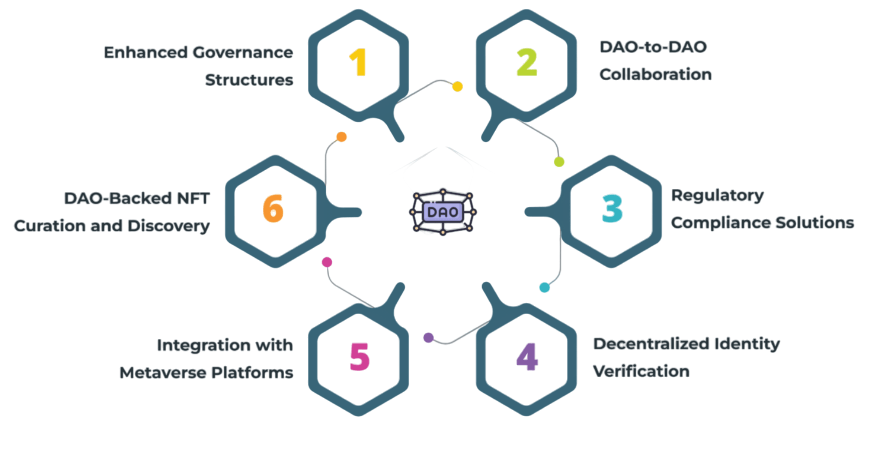
Challenges and Risks Associated with DAOs
- Security Vulnerabilities: Smart contracts are at the heart of DAO Web3 ecosystems, but any coding errors or security loopholes can be exploited. For example, vulnerabilities have previously led to significant hacks, highlighting the need for rigorous security audits.
- Scalability Issues: As DAOs grow, managing a large number of proposals, votes, and interactions can become complex. Without effective systems in place, scaling DAOs like Angel DAO, which supports early-stage projects, may encounter inefficiencies as the community expands. Understanding the Basics of Hashing in Blockchain is key to improving security and efficiency in handling transactions and data within DAOs.
- Legal and Regulatory Uncertainty: The future of DAOs is heavily influenced by the evolving legal landscape. In many jurisdictions, DAOs lack clear legal recognition, which could expose them to regulatory challenges, limiting their growth and acceptance.
- Low Voter Participation: Although DAO organizations are designed for decentralized decision-making, low participation rates in governance votes can undermine the effectiveness of DAOs. Many members may not have the time or interest to engage in every vote.
- Lack of Expertise: Angel DAO and similar organizations may face challenges in attracting specialized expertise to make informed decisions. DAO members often vote on technical issues without necessarily having the technical knowledge to do so effectively.
- Decision-Making Delays: The process of proposal submission and voting can be slow, particularly in large DAOs. For Alliance DAO, which focuses on scaling Web3 startups, delays in decision-making can hinder quick actions, such as funding or resource allocation, when timing is critical.
While DAO organizations bring many advantages, they are not without their challenges and risks. Despite the transparency and decentralization they offer, several hurdles must be addressed for DAOs to fully realize their potential in shaping the future of governance and collaboration. Below are key challenges and risks that DAOs face today:
Real-World Examples of DAOs
What is DAO, A Decentralized Autonomous Organization (DAO) is a community-driven model of governance, powered by blockchain technology and smart contracts. These organizations eliminate the need for central authorities, allowing decisions to be made collectively by token holders. There are several real-world examples of DAOs that showcase the practical applications of this innovative governance model. One prominent example is MakerDAO, a DAO in blockchain that governs the DAI stablecoin, allowing users to participate in decisions on the protocol’s stability and governance. Another well-known example is Uniswap, a decentralized exchange that operates through a DAO, where token holders vote on key changes to the protocol, such as updates to liquidity pools and fees. Exploring Top Blockchain Project Ideas can help inspire new decentralized applications, similar to Uniswap, that leverage DAOs for community-driven governance and innovation. MolochDAO is another example, focusing on funding Ethereum development projects, where members pool resources and vote on which projects to fund. More recently, Angels DAO has gained attention, a DAO focused on decentralized venture capital, allowing token holders to vote on investments in early-stage blockchain startups. These examples highlight how DAOs are revolutionizing industries, providing decentralized, transparent, and efficient alternatives to traditional organizational structures. As DAO in blockchain technology advances, we are likely to see even more innovative use cases emerge in the future.
Are You Preparing for Blockchain Developer Jobs? Check Out ACTE’s Blockchain Interview Questions and Answers to Boost Your Preparation!
The Future of DAOs
The Future of DAOs is incredibly promising, with the potential to reshape industries, governance models, and financial systems. DAO organizations have already shown their value by enabling decentralized decision-making, transparency, and community ownership. As DAO Web3 technologies mature, we can expect these organizations to expand beyond finance and technology into areas like governance, healthcare, education, and even politics. The future of DAOs is likely to see a greater emphasis on legal recognition and regulatory frameworks, which will help DAOs become more integrated into traditional industries. As DAOs evolve, understanding the legal aspects and regulatory landscape will be crucial for their success. Blockchain Training offers the necessary knowledge to navigate these complexities, providing insights into blockchain technology, smart contracts, and the legal implications for decentralized organizations. This training will help individuals and businesses adapt to the growing integration of DAOs into mainstream sectors. Initiatives like Angel DAO, which focuses on decentralized venture capital, and Alliance DAO, which supports the growth of Web3 projects, are setting the stage for a more diverse and inclusive range of DAO applications. These DAOs represent the growing trend of organizations that operate without centralized leadership, providing more equitable opportunities for participation and funding. As blockchain adoption continues to rise, DAOs are poised to play a central role in the Web3 ecosystem, facilitating secure, decentralized collaborations and creating a future where decentralized autonomous organizations redefine how we work, invest, and govern. The evolution of DAOs will also likely include enhanced scalability, more user-friendly interfaces, and deeper integration into the global economy.


